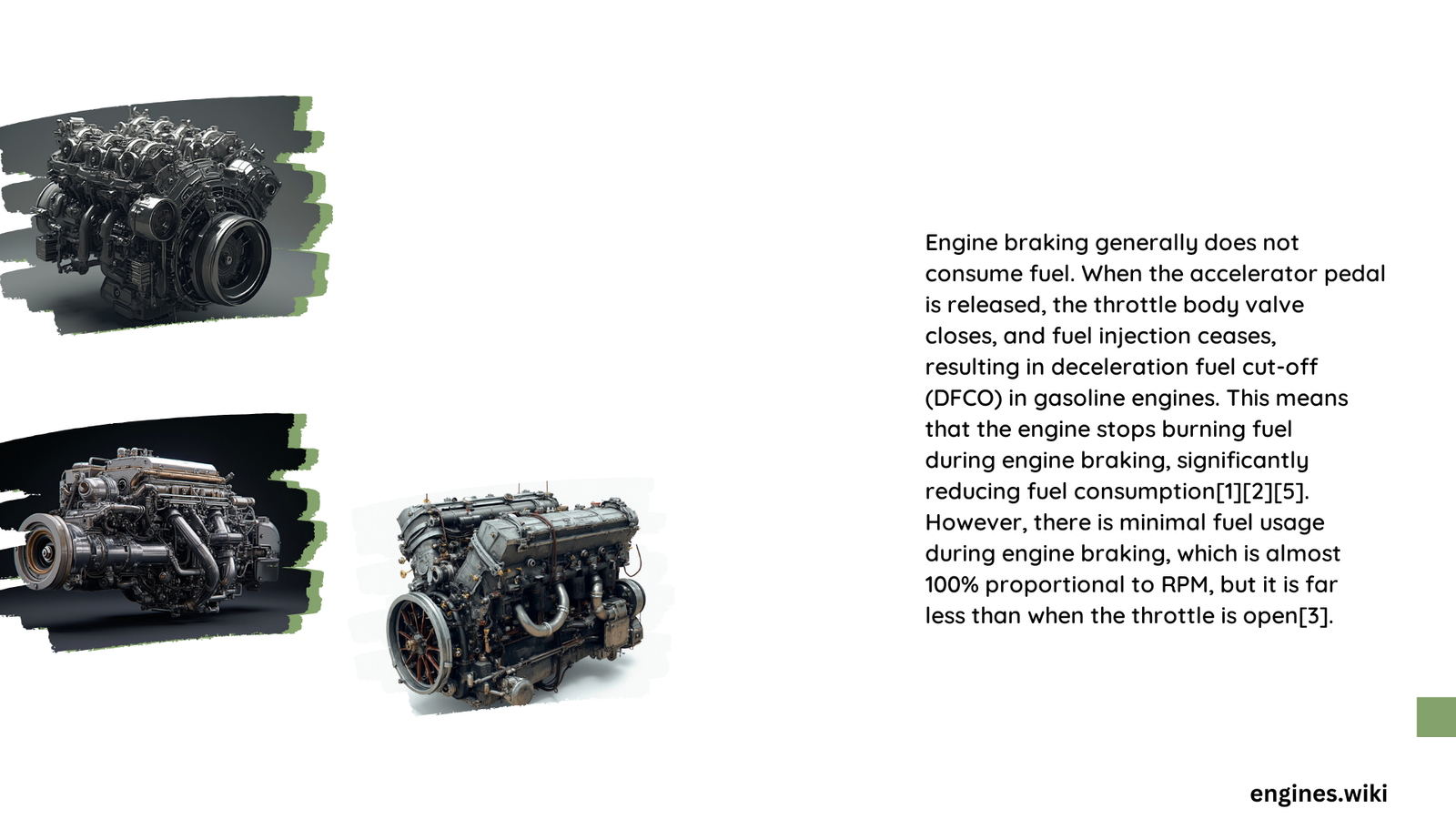Does Engine Braking Consume Fuel? Unveiling the Technical Insights
Engine braking represents a complex automotive phenomenon where vehicle deceleration occurs through transmission and engine resistance. Contrary to popular misconception, engine braking does not consistently consume significant fuel quantities. Modern vehicle engines strategically manage fuel injection during deceleration, often reducing or completely eliminating fuel consumption when wheels drive engine rotation.
What Happens During Engine Braking?
Engine braking occurs when a vehicle slows down by shifting to a lower gear, allowing the engine’s internal resistance to reduce vehicle speed. The process involves several critical mechanical interactions:
Key Mechanical Processes
- Transmission Engagement: Lower gears create increased resistance
- Fuel Injection Interruption: Engine management systems cut fuel supply
- Rotational Energy Conversion: Kinetic energy transforms into mechanical resistance
How Much Fuel Does Engine Braking Actually Use?
| Driving Condition | Fuel Consumption | Efficiency |
|---|---|---|
| Downhill Descent | Near Zero | High |
| City Driving | Minimal | Moderate |
| Highway Deceleration | Low | High |
Factors Influencing Fuel Consumption
- Engine Type
- Diesel engines typically consume less fuel during braking
-
Gasoline engines have slightly higher idle fuel requirements
-
Vehicle Speed
- Higher speeds generate more rotational resistance
- Lower speeds might require minimal fuel maintenance
When Does Engine Braking Consume More Fuel?
Certain scenarios increase fuel consumption during engine braking:
– Frequent gear changes
– Incomplete deceleration
– High RPM maintenance
– Aggressive downshifting
Technical Calculations of Fuel Consumption
Brake Specific Fuel Consumption (BSFC) Formula:
[
BSFC = \frac{Fuel\,Mass\,Flow\,Rate}{Engine\,Power\,Output} \times 3600
]
This formula helps engineers understand precise fuel consumption during different engine operating conditions.
Practical Recommendations
- Use Engine Braking Strategically
- Anticipate traffic flow
- Minimize unnecessary gear shifts
-
Maintain smooth deceleration
-
Modern Vehicle Considerations
- Electronic control units optimize fuel management
- Hybrid and electric vehicles have different braking dynamics
Advanced Insights
Professional drivers and automotive engineers recognize that engine braking is more about energy management than fuel consumption. The process converts kinetic energy into mechanical resistance, effectively reducing vehicle speed without significant fuel penalty.
Conclusion
Engine braking generally consumes minimal to zero fuel during proper deceleration. The key lies in understanding your vehicle’s mechanical characteristics and driving smoothly.

